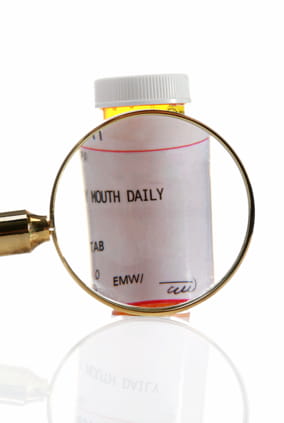
NATUROPATHIC TREATMENT OPTIONS FOR INFLAMMATORY BOWEL DISEASE
Naturopathic Medicine is an excellent choice for those seeking to treat Inflammatory Bowel Disease naturally. Naturopathic Medicine offers various natural treatment options such as those listed below, which are safe and extremely effective for treating the symptoms of IBD, once the root cause of the symptoms is determined through a thorough assessement and testing.
WHAT IS NATUROPATHIC MEDICINE?
Naturopathic medicine is a systemic approach to health by identifying and treating the root cause of the problem and the associated symptoms using the body’s natural ability to heal, with the support of natural therapies such as:
- Acupuncture
- Diet and nutrition counselling
- Homeopathic medicine
- Herbal medicine
- Lifestyle modifications
- Physical therapies (hydrotherapy and massage)
WHO ARE THE NATUROPATHIC DOCTORS?
Naturopathic Doctors are highly educated primary care health care providers that work with their clients to correctly diagnose their health issues using scientific diagnostics and then treat using various natural health modalities.
For more information about naturopathic medicine, please click here...
WHAT TO EXPECT AT YOUR NATUROPATHIC VISIT?
In your initial appointment with the naturopathic doctor, SUSHMA SHAH, you will go through a comprehensive and thorough intake of your health concerns and symptoms, regarding your digestive complaints, along with any other aspects of your well being such as your lifestyle, stress levels, which may be relevant to your health concerns. A standard CBC (complete blood count) test and urine (random) test will accompany this visit.
Our naturopathic practitioner may also recommend additional laboratory tests such as food allergy and sensitivity testing and comprehensive stool testing, that she feels may be important to better physiologically evaluate for your health concerns. She may also recommend some supplements and dietary modifications based on your symptoms.
Following the initial visit, there will a physical exam performed by the naturopathic doctor about a week later. She may discuss some laboratory reports at this appointment.
At your treatment plan visit, our naturopath will give you an individualized treatment recommendations* based on your intake at the initial appointment, the physical findings and the laboratory reports. The recommendations may include a combination of natural therapies such as supplements, herbal medicine, and dietary and nutrition changes, along with stress management techniques.
NUTRITION RELATED PROBLEMS ASSOCIATED WITH IBD
- Anemias due to blood loss and poor food intake
- GI narrowing and strictures leading to bloating, nausea and bacterial overgrowth
- Inflammation and surgical resections causing mal-absorption of bile salts and nutrients
- Food aversions and anxiety and fear of eating due to possible GI symptoms
- Increased GI secretions with inflammation and increased transit time
DIET AND INFLAMMATORY BOWEL DISEASE
- Our diet is a major factor in determining the health of our intestinal environment
- Several studies that have analyzed the pre-illness diet have confirmed that the incidence of Crohn’s disease has increased in cultures consuming the “ western diet” – which is much higher in genetically modified food, animal protein and refined sugar, and very low in raw fruit and vegetables and dietary fiber, compared to cultures consuming a more primitive diet
- Consuming foods that are high in refined carbohydrates and commonly allergenic in nature such as corn, wheat, soy, eggs, dairy, oranges among others regularly does seem to affect rate of increase of Crohn’s disease but not Ulcerative Colitis
- As well, consumption of dairy products that have carrageenan (a stabilizing agent for milk proteins) such as chocolate milk, ice cream, cottage cheese, milk chocolate, among others can effect individuals with an over growth of certain types of bacteria in their digestive tract causing carrageenan induced damage in the intestines
FOOD INTOLERANCES AND INFLAMMATORY BOWEL DISEASE (IBD)
In patients with IBD, the permeability of the intestinal wall to molecules of food and cell fragments is usually increased in inflammatory states, allowing a heightened interaction of antigens (food components otherwise harmless in healthy individual) with the host immune system.
Food intolerances of various types occur more than twice as often in persons with inflammatory bowel disease than in the population at large. Food intolerances must be investigated using proper blood tests testing for IgG’s to various foods.
In general, elimination / significant reduction of intolerant foods by following an individualized diet, along with the proper supplementation helps to significantly reduce or eliminate digestive symptoms such as gas, bloating, diarrhea, and various other extra-intestinal symptoms.
Since malabsorption is a great concern with inflammatory bowel disease, proper intake of food and protein, especially in the acute stages of a flare up, and supplementation with quality vitamins, trace elements and minerals is extremely important.
The importance of correcting nutritional deficiencies in patients with inflammatory bowel disease cannot be overstated, as these can lead to altered GI function and structure leading to further increase in malabsorption and further decreasing nutrient status. Various diets have been proposed for the the treatment of inflammatory bowel disease at different stages. Please talk to your naturopathic doctor before starting any diets.
The most important goal with any diet for inflammatory bowel disease is to:
- Provide adequate calories and alleviate symptoms
- Provide the patient with adequate nutrients that are/ maybe depleted in the system due to do the disease
- Stop inflammation in the bowels that maybe further exacerbated due to ingestion of certain types of food
- Address the primary cause of symptoms
MINIMAL RESIDUE DIET
- During all the phases, and especially during the acute and severe exacerbations of the disease, the diet must be tailored to the individual patient
- A minimal residue diet that limits the intake of poorly absorbed sugars, caffeine, and excess fiber might be used initially to reduce diarrhea. Diarrhea aggravates the loss of minerals such as zinc, potassium and selenium
- The minimal residue diet helps to reduce fecal volume
ELEMENTAL DIET
- This diet has been shown to be an effective non - toxic alternative to corticosteroids as the primary treatment of acute inflammatory bowel disease flare-ups
- This diet has been purported to contain all the essential nutrients and pre-digested proteins or free-from amino acids and is essentially an allergy elimination diet
- Hospitalization may be required for the proper administration of this diet
- Fiber may be restricted if there is any partial obstruction in the bowel due to scarring or inflammation, and small, frequent feedings maybe necessary and better tolerated
- Nutritional formulas with omega 3 fatty acids, specific amino acids (e.g. l – glutamine), along with antioxidants, and pre and probiotics may be used
- Usually if fat mal-absorption is suspected, MCT or medium chain triglycerides are used to add calories as well as serve as a vehicle for fat - soluble nutrients
ELIMINATION / OLIGO-ANTIGENIC DIET
The elimination diet is the primary choice of treatment for chronic inflammatory bowel disease. However before one can be put on an elimination diet, the food allergies have to be properly diagnosed since the omission of foods from the diet on the basis of improper diagnosis can and has threatened the nutritional status of the individual. (Altman and Chiaramonte, 1996).
Proper food allergy diagnosis requires:
- Identification of the suspected food item
- Proof that the food does cause an adverse response
- Verification of the immunologic involvement –(IgE and IgG – mediated reactions)
Once the allergies to food have been established, using laboratory methods (preferably one that measures IgE and IgG mediated reactions), the allergens are avoided from the diet; along with a diverse rotation diet is generally used. Wheat and dairy products have been found to be the most common offending foods.
HIGH-COMPLEX CARBOHYDRATE, HIGH FIBER DIET (HCF)
High-complex carbohydrate, high fiber diet has a favorable effect on the course of Crohn’s disease. Having a HCF diet along with an elimination or rotation diet is much more effective than just a high fiber diet alone. Dietary fiber has a profound effect on the intestinal environment and promotes a more optimal intestinal flora composition. Oat bran, psyllium powder, raw vegetables maybe used instead of wheat bran in patients intolerant to wheat.
PROBIOTICS
- Probiotics are living organisms that exert protective effects on the intestinal mucosa
- Probiotics may be used as an adjunct to standard therapy for mild to moderate inflammatory bowel disease
- They have been used in the treatment of acute diarrhea caused by rotavirus as well as the treatment and prevention of Clostridium difficile colitis. Probiotic foods have been shown to alter the intestinal flora and prolong periods of remission.(Linkskins et al, 2001; Masden,2001)
Benefits of Probiotics:
- Inhibit growth of pathogenic bacteria
- Enhance the barrier function of the epithelium
- Improve the immune activity of the host
- Produce bactericidal proteins
- Help inhibit the apoptosis (programmed cell death) of epithelial cells
- Enhance digestion and absorption of foods
- Have anti–inflammatory properties
- Modulate intestinal cytokine production
Saccharomyces boulardii – Pilot study showed that S. boulardii helped reduce the frequency of bowel movements in patients with mildly active Crohn’s disease as well reduce the Crohn’s Disease Activity Index (CDAI).
Lactobacillus may have a protective role against pathogenic bacterial within the normal host, as well may have a role in inducing remission in patients with Crohn's Disease.
PREBIOTICS
- Prebiotics such as FOS (fructo- oligo –saccharide) and fermentable fibers, are a non digestible nutrient that promotes the growth of a selected probiotic and enhances the growth of gut flora with similar properties to that probiotic
- Prebiotics serve as fuels for colonic flora and result in altered micro flora in the colon and increase production of SCFAs (short chain fatty acids) that decrease luminal pH and produce bactericidal proteins
- Studies have confirmed that short term use of pre and probiotics treatment reduced mucosal inflammatory markers in active UC and improved clinic appearance of chronic inflammation.(Doman, David,2008)
- In one study, patients that had failed to achieve remission with amino salicylates and prednisone were given a combination of bifidobacterium and lactobacillus species, along with psyllium and 70 % noticed a huge reduction in symptoms and 20 % were able to discontinue prednisone. (Fujimori et al, 2007)
OMEGA OILS AND INFLAMMATORY BOWEL DISEASE (IBD)
Omega 3 oils are polyunsaturated fatty acids that are abundant in fish such as salmon, mackerel, herring, tuna, along with flax seeds, walnuts, soy and canola. Studies over the past 2 decades have demonstrated that omega 3 fatty acids, such as those found in fish oils helps to reduce the inflammation in the body by reducing the synthesis of aggressive inflammatory response cytokines.
- A reduced intake of omega 3 oils and an increased intake of omega 6 oils has also being linked to an increase in Crohn’s disease in Japan
- The increased incidence is most likely due to the incorporation of “ Western foods” in their diet
- In one analysis, the daily intake of dietary components was compared annually from 1966 to 1985
- The analysis concluded the increased incidence of Crohn’s disease correlated with the increased dietary intake of total fat, animal protein, milk protein, and the ratio of omega-6 to omega-3 fatty acids
- Correction of this ratio by reducing intake of omega 6 fatty acids and increasing omega 3 fatty acids may lead to significant clinical benefit by impacting eicosanoid metabolism and decreasing inflammation in the body
STRESS AND EMOTIONAL FACTORS AFFECTING INFLAMMATORY BOWEL DISEASE
- Stress can be mental, emotional, physical, psychological, environmental and dietary. While each of the above may effect the body in different ways, the reaction produced by the body is normally the same
- When the body is under stress for any length of time, the adrenal glands produce a hormone called cortisol
EFFECTS OF CORTISOL ON THE BODY
While it helps the body adapt to stress, it also:
- RAISES BLOOD GLUCOSE
- RAISES LIPID AND CHOLESTEROL LEVELS
- INCREASES INFLAMMATION IN THE BODY
- EVENTUALLY CREATES NEW SYMPTOMS THE BODY DID NOT SUFFER BEFORE (SUCH AS ALLERGIES, FATIGUE, LETHARGY, IMMUNE SUPPRESSION)
“YOUR GUT IS YOUR SECOND BRAIN” – during gestation, the same neural tissue that divided to form the brain, also forms the gastrointestinal tract. Hence, whatever your mind is experiencing in terms of emotions– your gut will experience but in a very different way. Serotonin is a neurotransmitter that is primarily found in the gastrointestinal tract, a well-known contributor to feelings of well-being; it is also known to contribute to happiness.
Approximately 90% of the human body's total serotonin is located in the enterochromaffin cells in the gut, where it is used to regulate intestinal movements. Serotonin directly and indirectly affects intestinal motor and secretory function and abnormalities may lead to either constipation or diarrhea.
The ongoing, bidirectional brain–gut interactions involving serotonin pathways occur that significantly influence the effector systems. Altered serotonin signaling may lead to both intestinal and extra-intestinal symptoms such as depression in inflammatory bowel disease / IBD.
- If irritants are present in the food, the entero-chromaffin cells release more serotonin to make the gut move faster, i.e., to cause diarrhea, so that the gut is emptied of the noxious substance.
- Low serotonin levels in inflammatory bowel disease stem from gastrointestinal influences affecting serotonin production and release.
- A recent study conducted at Boston University showed that up to 40 percent of patients with inflammatory bowel disease suffer from depression related to changes in serotonin levels.
The use of 5 HTP – a precursor to serotonin in practice has been shown to improve the symptoms of both depression and to manage intestinal symptoms in some patients, depending on the severity of the disease, however it must be used with caution and under the guidance of your naturopath or health care provider. Talk to your naturopathic doctor about natural stress management techniques.
CONCLUSION
- For a typical patient suffering from inflammatory bowel disease or IBD, it is important to realize that this is a chronic disease and long-term therapy and follow up with your health care provider is important to monitor progress
- A combination of traditional as well as complementary care will be beneficial for treatment as well as understanding the course of the disease and the role of various diets and supplementation on the disease
Simple naturopathic suggestions for inflammatory bowel disease:
- Increase intake of foods rich in omega 3 fatty acids such as cold water fish such as salmon, mackerel, herring, and halibut and decrease intake of meat and dairy to reduce inflammation in the GI tract
- Avoids foods that you know or suspect may be worsening your symptoms or cause flare-ups
- Learn ways to manage your stress better – find new strategies to deal with stress. Exercise, acupuncture and massage are for a great therapy for stress relief
- It is essential to take a high potency multivitamin and mineral formula providing all the vitamins and minerals, along with antioxidants
- Talk to your naturopathic doctor about what supplements would be ideal for you as an individual and in what form- liquid or pill format as absorption may be a huge concern for patients with inflammatory bowel disease / IBD
To schedule an appointment, please call 416 913 4325 or email us at [email protected]
* DISCLAIMER: The information on this article is the property of Dr. Sushma Shah, Naturopathic Doctor, and is not intended to treat, diagnose or cure any diseases or promote any services or products mentioned on the website.
Related Articles
Candidiasis
Candida overgrowth in the gastrointestinal tract is now becoming recognized as a complex medical syndrome known as chronic candidiasis or the yeast syndrome. Symptoms include: Multiple food allergies, or allergic to all foods( pan allergic), alternating diarrhea with constipation.
Chronic Fatigue
Chronic Fatigue Syndrome (CFS) is described as a severe, debilitating fatigue, lasting at least six months, associated with at least four of the following symptoms: impaired memory or concentration, sore throat, muscle pains, joint pains, unrefreshing sleep and post-exertion malaise.
Weight Management Program
After having tried all sorts of fad diets and pills most people are unhappy with their present weight. So what should you do about weight control? Visit our Weight Management Program and find about the Naturopathic Way To Better Health.




